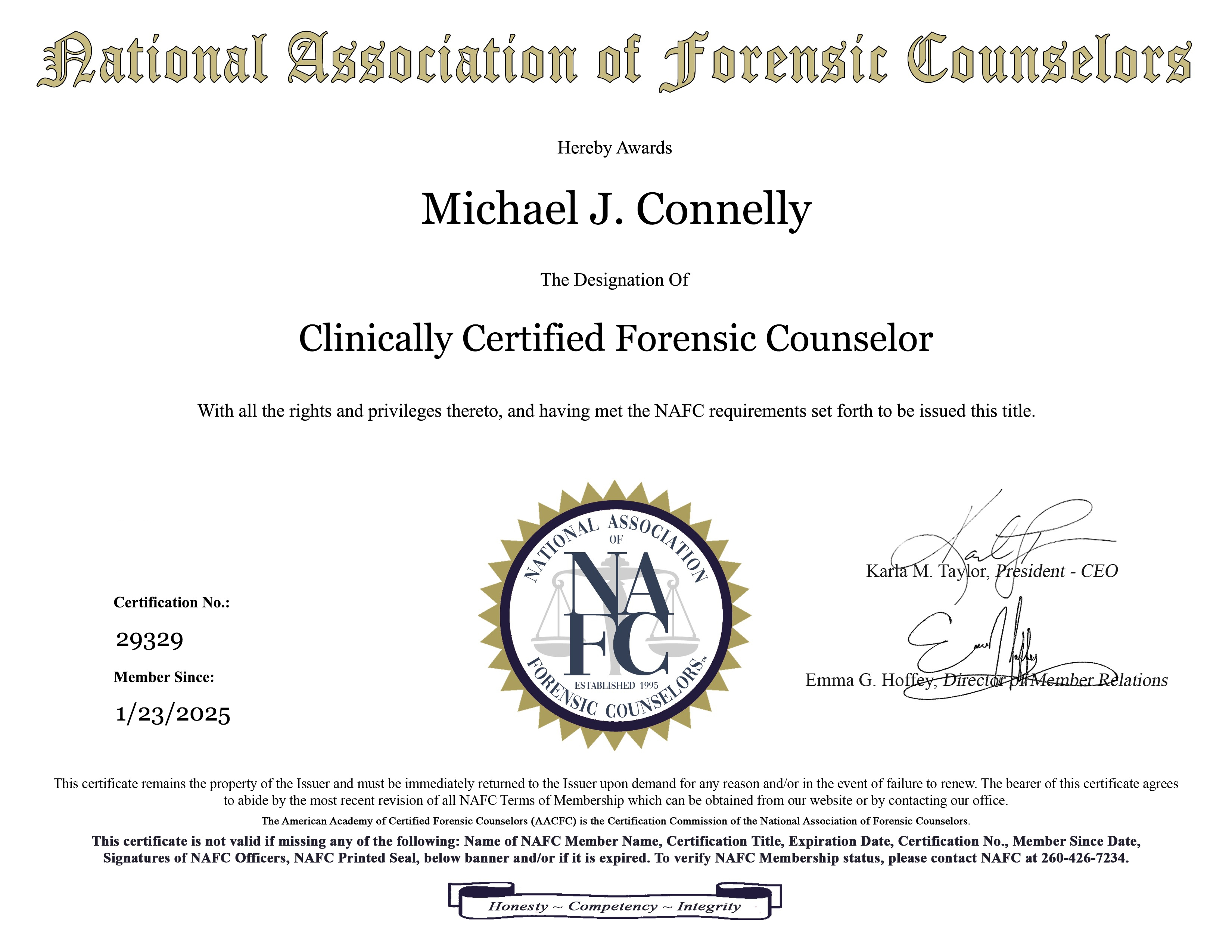COURT MENTAL HEALTH EVALUATION



Licensed Professional Counselor in Pennsylvania (LPC# -004578)
Licensed Professional Counselor in New Jersey, PA (LPC# -37PC01161200)
Certified Co-occurring Disorder Professional (CCDP# 401591)
National Certified Counselor (NCC# 202089)
Certified Anger Management Specialist (CAMS-1 #65342)
Certified Shoplifting and Theft Addiction Specialist (CSTA)
Certified Forensic Counselor (CFC #29329)
in the State of Pennsylvania

Professionals look for any signs or indications that the individual may have a mental health
disorder.
The evaluation also considers an individual’s criminal history, current mental
state, treatment needs, and any other factors that may help determine or diagnose a
disorder.
Generally, a mental health assessment may be needed if the individual experiences sleep
changes, mood changes, anxiety, confusion, and apathy (loss of interest in usual
activities).
If you notice these changes in yourself or a loved one, our behavioral health
experts conduct a mental health evaluation for patients to help determine symptoms and
create an appropriate treatment plan.

A court-ordered mental health evaluation is a formal, structured assessment conducted by specially trained mental health professionals who assess the individual's mental state to determine whether they’re fit to stand trial. The primary objectives of court-ordered psychological evaluation for adults are to assess an individual's mental competence, capacity to stand trial, and potential risk to themselves or society.
These evaluations are often ordered in legal cases where there are concerns about the defendant's mental state, such as criminal cases involving insanity pleas, competency to stand trial, or when a defendant's mental condition is a relevant factor in the legal proceedings.
Court-ordered mental health evaluations play a crucial role in ensuring that individuals involved in legal proceedings are treated fairly, especially when mental health concerns are a factor. They help determine if an individual is mentally fit to participate in legal processes and contribute to the pursuit of justice with a focus on the individual's mental health needs and well-being.

These may cover the individual’s personal history, mental health symptoms, and any relevant legal or medical issues.
This is done to assess the individual’s cognitive and emotional functioning.
Evaluators may review records, including medical records, prior mental health treatment records, police reports, and court documents, to gain further background information about the individual’s condition.
Evaluators also obtain collateral information from family members, friends, or others who can provide insights into the individual’s behavior and mental health history.
Based on the evaluation, the mental health professional may recommend treatment, psychotherapy, or other interventions to address the individual's mental health needs.

The evaluator may observe the individual's behavior during the evaluation to assess their mental state and demeanor.
A thorough assessment of the individual's mental health history, including past diagnoses, treatments, and hospitalizations, plays a crucial role in court-ordered mental health evaluations.
The evaluator will provide diagnostic impressions if a mental health disorder is identified.
In cases involving competency to stand trial, the evaluation will determine if the individual can understand the legal proceedings and assist in their defense.
The findings and recommendations are compiled into a formal report submitted to the court. This report is used by the judge and legal parties to make informed decisions regarding the case.
Mental health professionals use a structured set of questions and interviews to assess an individual’s mental state during evaluations. Some questions and topics common in court-ordered mental health evaluations include:
It varies depending on the situation. Usually, the individual who is undergoing the mental health evaluation is responsible for paying for it. However, in cases where the individual is undergoing a court-ordered mental health evaluation, the judge determines who pays for it.